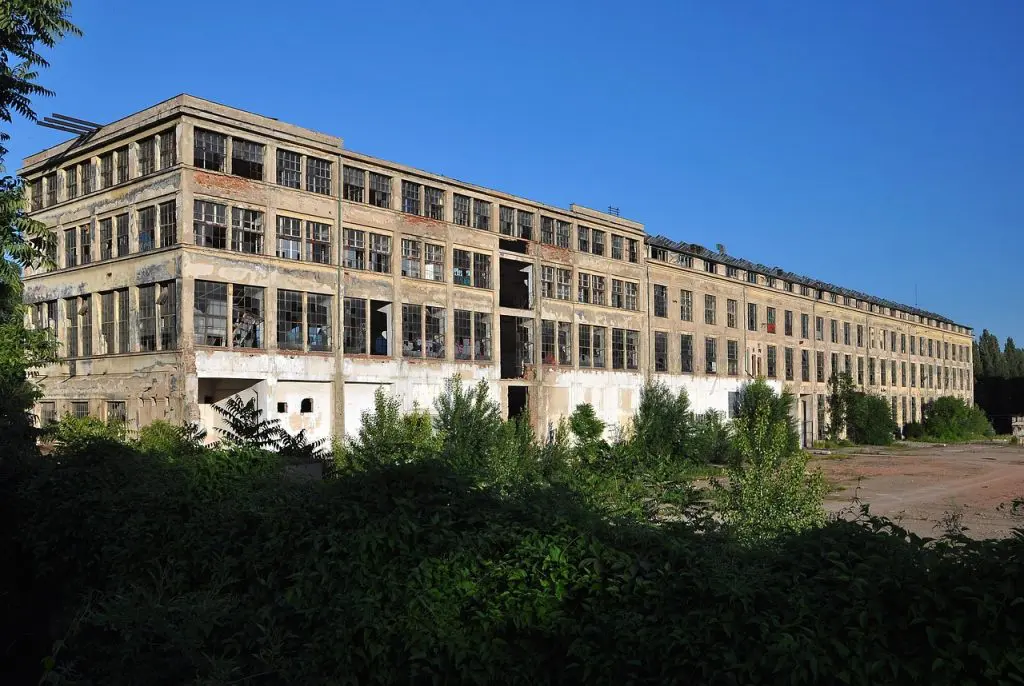
83 Potential New Homes in Wicklow Through Vacant Commercial Conversions Wicklow County Council could be in a position to deliver up to 83 new homes if vacant commercial buildings are converted to residential use, new government figures reveal. The data highlights how planning exemptions introduced in 2018 are helping local authorities unlock underutilised space, including […]
Wicklow County Council could be in a position to deliver up to 83 new homes if vacant commercial buildings are converted to residential use, new government figures reveal. The data highlights how planning exemptions introduced in 2018 are helping local authorities unlock underutilised space, including disused pubs, amid the ongoing housing crisis.
Under a planning exemption scheme introduced in 2018, certain commercial properties can be converted into residential homes without the need for planning permission. According to figures published by Housing Minister James Browne, between 2018 and 2024, 1,457 notifications were submitted nationwide to convert vacant commercial units into homes. If acted upon, these could yield 3,429 new residential units.
In County Wicklow, 38 notifications were submitted during that period, with the potential to deliver 83 homes. These include properties such as former shops, offices, and notably, pubs.
One site off Killarney Road in Bray received 11 notifications that, if implemented, could provide 26 homes. In Sheephouse, Arklow, 7 notifications were submitted, potentially adding 8 homes.
In 2022, the planning exemptions were extended to include vacant pubs, offering an alternative use for premises impacted by declining trade. Since that change, three notifications have been submitted in Wicklow for conversions involving pubs, which could yield 14 new homes.
Nationally, 150 notifications to redevelop vacant pubs have been lodged, with the potential to deliver over 450 homes.
Converting existing commercial properties, such as vacant shops and pubs, into residential homes represents a key strategy in adaptive reuse, a sustainable alternative to demolition and new construction. This approach preserves embodied carbon, reduces construction waste, and minimises land disturbance. For Wicklow and other counties, this means addressing housing needs without further expanding the urban footprint, helping to preserve greenbelt areas and protect biodiversity.
To maximise long-term benefits, conversion efforts should be integrated with County Development Plans and Local Area Plans, aligning with broader strategies around transport, green space, school capacity, and public services. This ensures housing growth is not only rapid but strategically sustainable.
Minister Browne welcomed the figures, calling the exemption scheme a “vital tool” in repurposing underused properties. He stressed the urgency of the situation:
“I feel very strongly about buildings lying often vacant in the middle of a housing crisis, and to be honest it is not acceptable if a conversion is possible.”
He added that the move supports the government’s Town Centre First Policy, which aims to revitalise villages, towns, and cities through regeneration and more sustainable development.
“This measure not only boosts the supply of homes, but also our Town Centre First Policy which is breathing new life into our villages, towns and cities by supporting regeneration and more vibrant, sustainable communities across the country.”
Across Ireland, the types of properties most commonly identified for conversion include:
Former shops (31%)
Offices (23%)
Public houses (14%)
Service-related properties (13%)
Over the last two decades, more than 2,100 pubs have closed in Ireland. Wicklow is among the counties with the fewest closures during this period, along with Dublin, Meath, and Kildare.
While planning exemptions ease the regulatory burden for conversions, energy efficiency remains a critical challenge. Many older commercial buildings lack proper insulation, efficient heating systems, or renewable energy capabilities. Future policy efforts could include grants or incentives to ensure that converted homes meet BER (Building Energy Rating) targets, aligning with Ireland’s Climate Action Plan 2024 and long-term carbon reduction goals.
The conversion of vacant commercial buildings, particularly pubs, into homes offers a practical, policy-backed solution to address Ireland’s housing crisis. In Wicklow alone, 83 homes could be added without major new development, using buildings that already exist. As the government pushes for faster and more efficient housing delivery, these measures represent a step forward in making better use of the built environment while breathing new life into local communities.
At All-Ireland Sustainability, we’re committed to building a greener, fairer island, together. Stay informed on the latest environmental initiatives, community action, and policy developments shaping sustainability across Ireland, North and South.
👉 Sign up for our newsletter today and be the first to hear about upcoming events, expert insights, and ways to get involved.
Whether you’re a seasoned advocate or just starting your journey, new members are always welcome.
Subscribe now and be part of the All-Ireland Sustainability network.